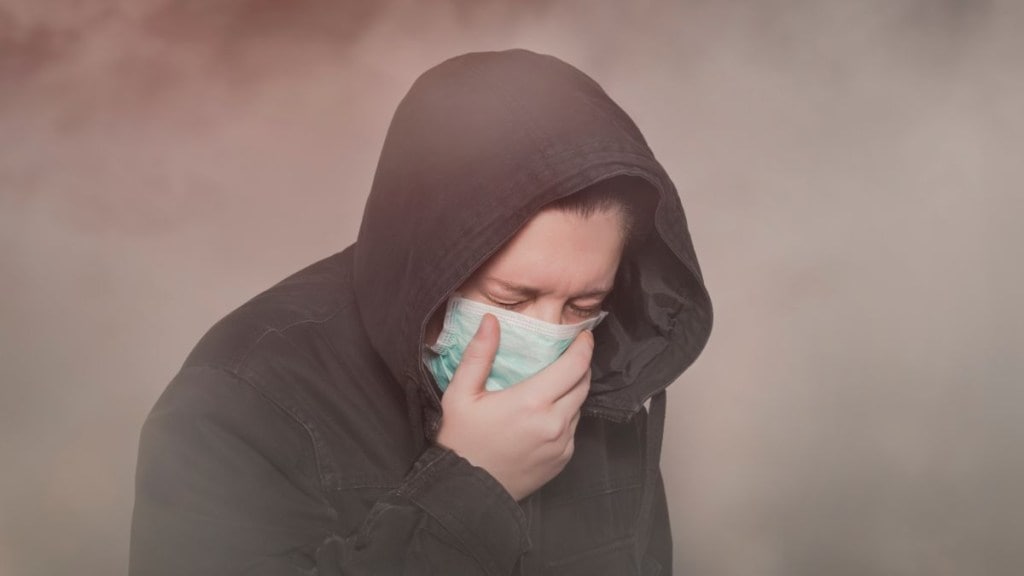With Delhi AQI still in the ‘poor’ category at 228 on Wednesday morning, as per data from the Central Pollution Control Board (CPCB), the citizens continue to grapple for fresh air. Exposure to toxic air has been linked with several lung conditions including asthma, chronic obstructive pulmonary disease (COPD), and even lung cancer. In an exclusive interview with Financial Express. com, former AIIMS Director Dr Randeep Guleria shared how poor air quality is now affecting even those with no underlying health issues, especially the younger generation, who are reporting symptoms ranging from persistent cough and chest wheezing to breathing difficulty.
Dr Guleria said that healthy people with no pre-existing issues are increasingly reporting worrisome respiratory symptoms.
“People who have no underlying respiratory or heart problem or are otherwise healthy even at a younger age are at times complaining of feeling chest tightness, persistent coughing that’s not going away, breathing difficulty, whistling sounds from the chest,” the renowned pulmonologist said.
Another concerning symptom that Dr Guleria noted is that some “younger people are complaining that especially late in the evening or in the night they are not able to breathe properly.”
This points to airways becoming more sensitive in such people due to which they can react strongly to irritants, causing inflammation and narrowing.
“All these are signs that you are having some kind of airway narrowing and inflammation because of pollution going in and causing hyper-reactive airways or your airways becoming more sensitive and that causes chest tightness and breathing difficulties,” Dr Guleria told Financial Express.com.
Avoiding exposure as much as possible, and following precautions can help avoid respiratory distress.
“If you face such problems, the best thing would be to try and avoid exposure as much as possible. If it’s getting worse consult a physician and seek medical help for it. Follow the precautions in terms of prevention like wearing a mask, avoiding getting out as the air quality is really bad,” added the expert.
What to consider before stepping out of your homes
Air pollution is at its peak, and stepping out early in the morning or late in the evening could worsen pre-existing respiratory or heart conditions. Weather conditions during this time can trap pollutants closer to the ground, increasing health risks.
“It’s true that AQI is becoming worse moving into the poor or very poor range. People with underlying chronic and respiratory disease, and with chronic heart disease are more at risk of aggravating their underlying disease or worsening of their conditions, which can lead to hospital visits and even admissions,” Dr Guleria said.
Monitoring AQI and avoiding stepping out in early morning and late evening hours may help. “The best thing would be to monitor AQI in your area, stay indoors, especially early in the morning and late in the evening. Wear N95 masks to protect yourself,” he advises.
Dr Guleria also recommends waiting for the sun to come out before exercising.
“Avoid exercises especially jogging and brisk walking early in the morning and late in the evening as at that point in time ground level pollution is high due to inversion and cold air is high. Wait till the sun is out and it becomes warm before exercising outside,” he says.
To avoid emergencies, the top pulmonologist advises seeking a doctor’s advice in case of worsening respiratory symptoms. “If you have worsening of any of your respiratory symptoms or increase in breathlessness or difficulty in breathing you must consult your physician so that your medicine can be altered or increased so that you don’t land up in acute worsening and have to go to an emergency,” adds the expert.








